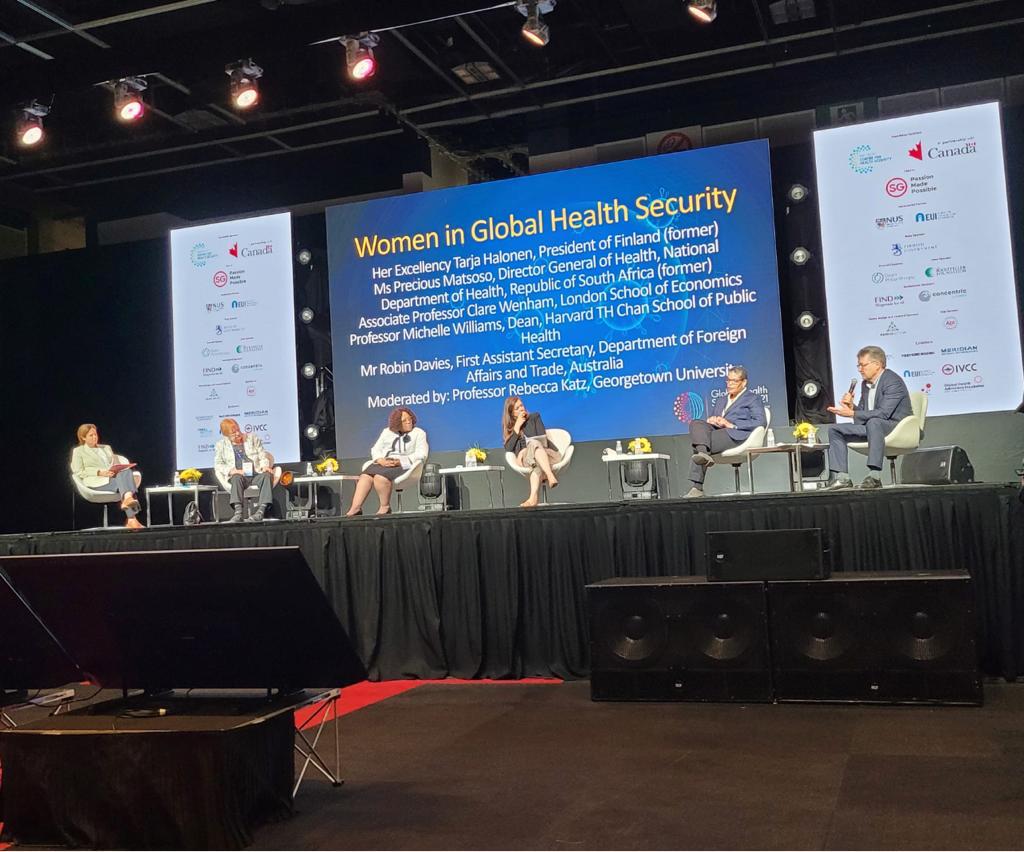A team from Nigeria Health Watch attended the Global Health Security Conference 2022 in Singapore. This article highlights key takeaways from the conference on what the world needs to do to prepare for the next pandemic, as well as lessons for Nigeria to #BuildBackBetter post COVID-19.
As the world moves towards recovery from the COVID-19 pandemic, key stakeholders across governments, the private sector, donor agencies, civil society organisations and academia, converged at the 2022 Global Health Security Conference in Singapore to answer one of the most important questions we are now faced with; what does the world need to do to prepare for the next pandemic?
A team from Nigeria Health Watch was in attendance to listen to and contribute to the discussions and present papers on work done in health communications and advocacy. Over the course of five days, several presentations, panel, and plenary sessions highlighted ways in which Global Health Security can be strengthened. This article highlights five key takeaways from the conference:
- Management of the new Financial Intermediary Fund (FIF)
On the 30th June 2022, the World Bank Board of Directors approved a Financial Intermediary Fund (FIF) for Pandemic Prevention, Preparedness and Response (PPR). The fund already has commitments from the EU, USA, Germany, Indonesia, Singapore, the United Kingdom, Wellcome Trust and the Bill & Melinda Gates Foundation, with pledges worth over $1.1 billion. The FIF will be run by a governing board consisting of donors, a technical advisory panel led by WHO with a trustee and a secretariat from the World Bank.
The fund will provide dedicated long-term financing to build global, regional, and country-level capabilities; with a focus on strengthening PPR capacities and addressing gaps in the International Health Regulations (IHR) 2005, in Lower- middle- income countries (LMICs). Given an increased understanding of the need to strengthen global and regional coordination for future pandemics, this was a welcome development.
As discussions on a pandemic treaty continue, the FIF is a good example that multilateralism can produce beneficial results. However, it is necessary for equity and inclusivity to be factored into the disbursement of the fund, as COVID-19 has exposed deep inequities in global health.
Speaking at a breakfast session titled, ‘A Financial Intermediary Fund for Pandemic Prevention, Preparedness and Response,’ Diah Saminarsih, Founder of the Centre for Indonesia’s Strategic Development (CISDI) said, “We must ensure that impact is achieved, it remains relevant and sustainable and the momentum of urgency that has built us together to this point continues.”
The World Bank hopes to make the Fund operational by September 2022.
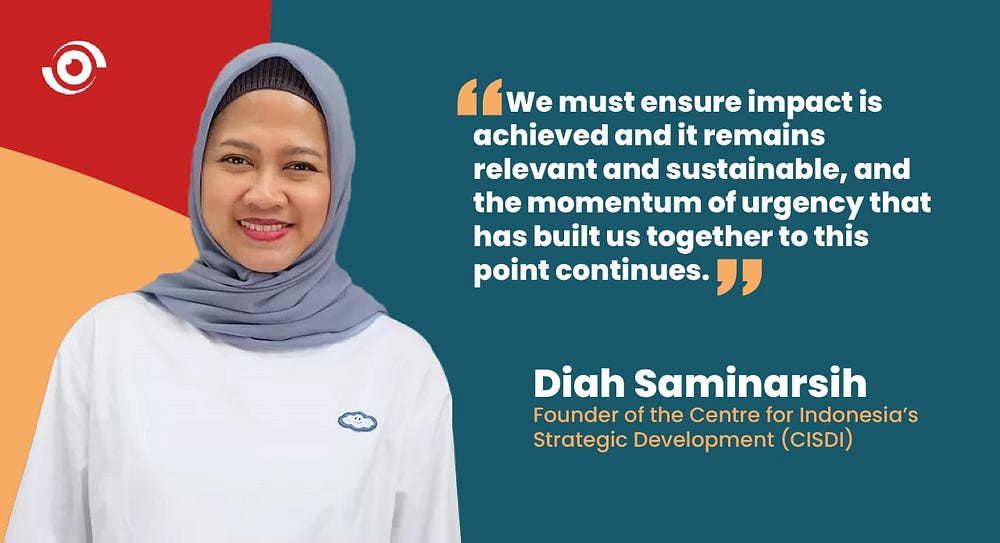
- Multilateralism and building trust
The COVID-19 pandemic showed the importance of building global and multi-sectoral cooperation during a pandemic, in response to public health emergencies. However, inequities in the distribution of the COVID-19 vaccines emphasised the need to bridge the gaps in the equitable supply of resources In LMICs. During the ‘Multilateralism and the Future of Global Health Cooperation’ session, Dr Jane Ruth Aceng Ocero, Uganda’s Minister of Health, said, “A heightened multilateral focus on equity and equitable global response is also critical, especially with regards to access to resources in times of crisis.” She stressed the need for the FIF to be made just as available to LMICs, in order to help strengthen prevention, preparedness, and response capacities, especially at the primary health care level.
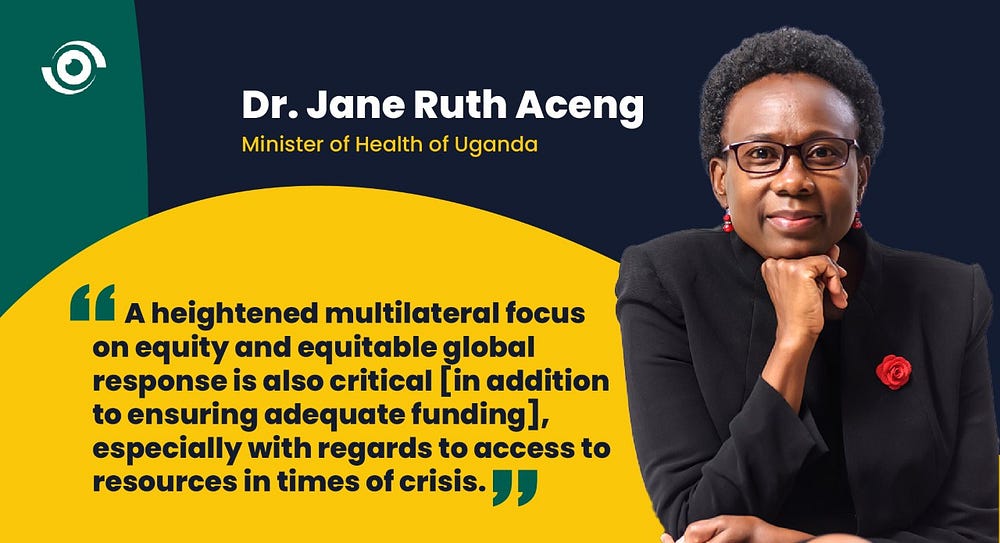
- Strengthening global genomic sequencing capabilities
During the conference, there were discussions about the need to strengthen genomic sequencing through surveillance and tracking pathogens, with the intent of knowing how they spread or mutate, and its implications for public health. Speaking at the Genomic Governance: Risks, Challenges and Next Steps session Dr Chikwe Ihekweazu, Assistant Director General for Health Emergency Intelligence at the WHO said, “In 2019, there were only 29 countries globally that had domestic genomic sequencing capabilities. Today, there are 107 countries with those capabilities.”
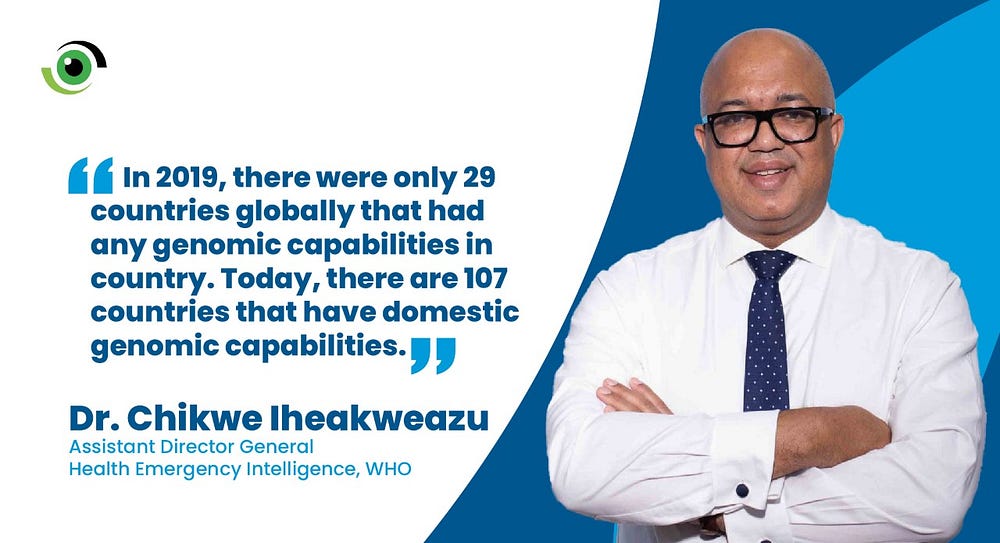
According to Dr Ihekweazu, this significant stride is not without its challenges, as countries have built these capacities organically, and as such, have not taken efficiency into account. There is therefore a need for strong coordination mechanisms and the institution of collaborative surveillance. To this end, the WHO set up an international pathogen surveillance network, which is driven by multiple parties, including the private sector.
There is also a need to strengthen capacity to interpret and use the data received from genomic sequencing, such as linking genomics to clinical data.
- Strengthening social and behavioural science in global health security
One of the two presentations the Nigeria Health Watch team gave at the conference was, ‘Managing Misinformation Using a Multimedia Approach’, in which we highlighted a project where a multimedia approach was used to debunk COVID-19 misinformation in Nigeria. Alongside several other presentations, the need to ensure that social and behavioural science is incorporated in a public health response became obvious for several reasons, some of which include:
- Social and behavioural factors drive health seeking behaviour and adherence to public health measures, which significantly contribute to the success of a public health response.
- Development of risk communications must always take societal, religious and cultural norms into consideration.
- While a successful public health emergency response must include strategic communications, there is a need to incorporate it into the design of prevention and preparedness measures as well, to promote knowledge, attitude and practices for healthy behaviours that will then transcend into the response.
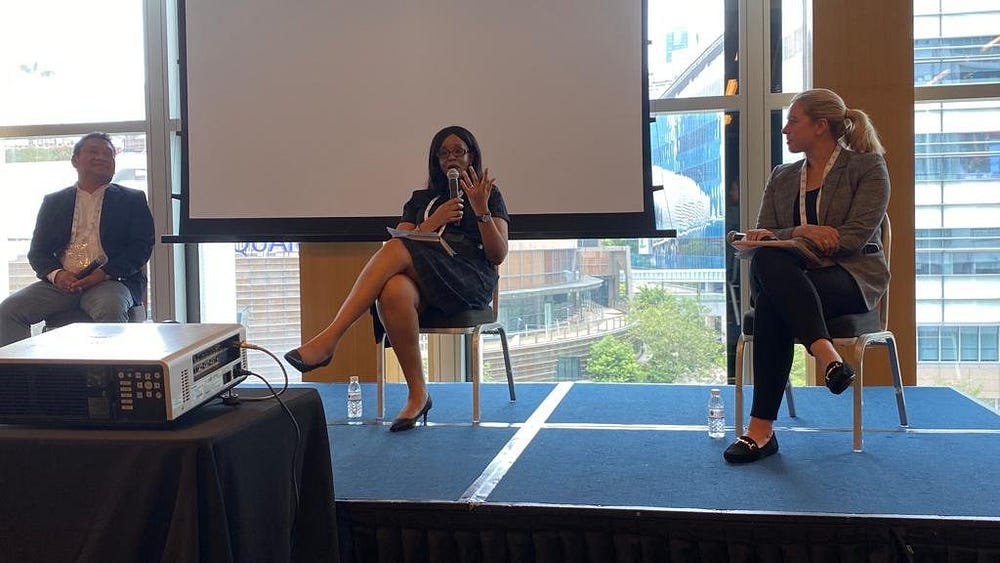
- Mainstream gender in health security policy
The Global Health Summit convened a plenary session on Women in Global Health Security. This was a welcome development because similar conferences often include sessions on women in global health as a side event. Discussions around the Global Health Security Agenda highlighted one of the key recommendations from the Independent Panel constituted by the WHO to review the global response to COVID-19 and the performance of the IHR (2005).
The need to mainstream gender equality into the global prevention, detection and response to public health emergencies was emphasised as an important priority. As mentioned by Dr Clare Wenham, Associate Professor of Global Health Policy, The London School of Economics and Political Science, the “current health security policy and architecture is really indifferent when it comes to gender”, putting women at a significant disadvantage.
Ms Precious Matsoso, Director General of Health, National Department of Health, South Africa, said, “We need to ensure that our instruments make provisions which put gender equality issues high on the agenda. This will be a demonstration that we are responsive and transformative.”
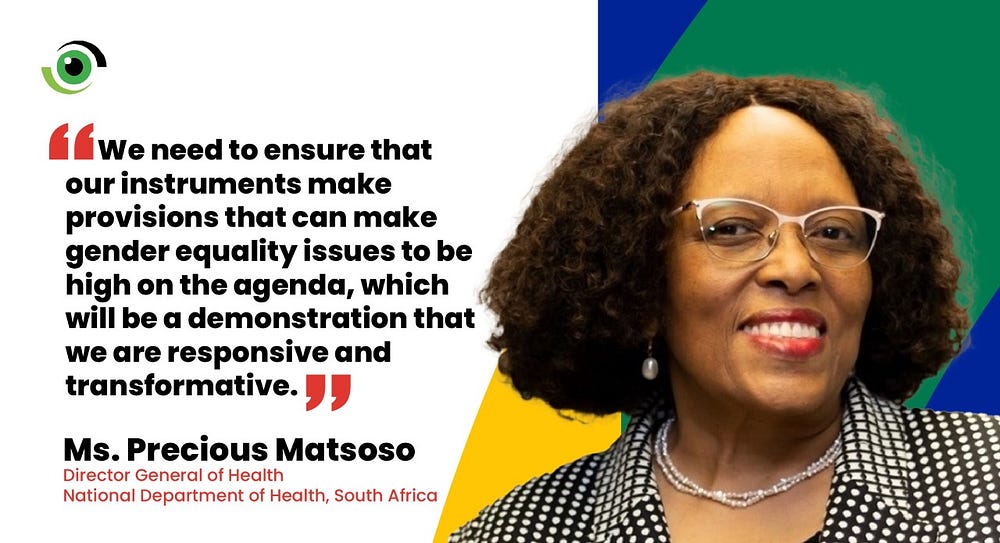
She emphasised the need to ensure that gender issues are incorporated in the much-needed review of the global health security instruments, and that gender equality needs are addressed from the societal, professional, and healthcare standpoints.
To #BuildBackBetter post COVID-19, Nigeria needs to demonstrate a commitment to sustained funding for epidemic preparedness, a good stage to enable the country to potentially benefit from the new Financial Intermediary Fund.
Lessons for Nigeria
(1) Nigeria needs to take a cue from these discussions. As an example, only two out of 12 members of the Presidential Task Force (PTF) which led the COVID-19 response in Nigeria were women. The voices of women need to be better represented in health emergencies to ensure the policies put in place reflect their lived experience.
(2) Nigeria has made some progress in genomic sequencing recently but needs to expand its genomic surveillance network and build laboratory capacity. This would also require making the necessary investments now to ensure the necessary capacity is built, developing expertise in genomic sequencing.
(3) The Nigeria Centre for Disease Control’s #TakeResponsiblity campaign was highly effective, but social and behaviour change communication promoting good health seeking behaviours needs to be strengthened, particularly at the grassroots.
(4) Finally, to #BuildBackBetter post COVID-19, Nigeria needs to demonstrate a commitment to sustained funding for epidemic preparedness, a good stage to enable the country to potentially benefit from the FIF.


